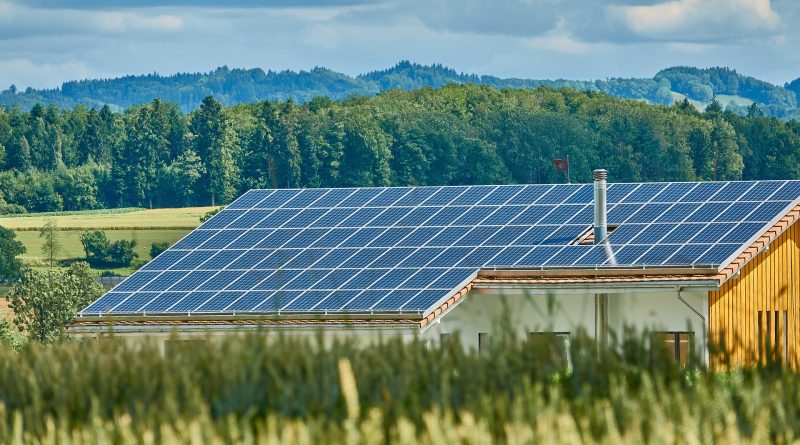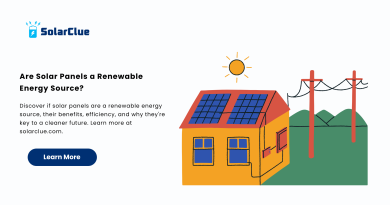Advantages of On-Grid Solar System: Clean Energy Benefits
In recent years, renewable energy sources like solar power have emerged as a viable and efficient alternative to traditional electricity generation methods. Among the various types of solar systems, on-grid solar systems have gained significant popularity due to their numerous advantages. These systems utilize solar panels to generate electricity and are connected to the existing grid network. This blog will highlight some of the key advantages of on-grid solar systems, shedding light on their economic, environmental, and social benefits.
Table of Contents
Reduced Electricity Bills and Financial Savings
One of the primary advantages of on-grid solar systems is the substantial reduction in electricity bills. By harnessing energy from the sun, on-grid systems generate electricity that offsets the amount drawn from the grid. Consequently, this results in lower energy costs, especially during daylight hours when solar production is at its peak. Depending on the size and efficiency of the system, homeowners and businesses can even achieve net-zero electricity bills, allowing them to redirect the saved money towards other investments or expenses.
Feed-in Tariffs and Financial Incentives
Many countries incentivize the adoption of solar energy by offering attractive feed-in tariffs. These programs enable owners of on-grid solar systems to sell excess electricity generated back to the grid. As a result, not only can one save money on electricity bills, but they can also earn revenue from the surplus energy produced. These financial incentives make on-grid solar systems even more economically advantageous and encourage their widespread adoption.
Environmental Benefits
On-grid solar systems have a significant positive impact on the environment. Unlike conventional electricity generation methods, they produce clean and renewable energy with zero greenhouse gas emissions. By utilizing solar power, on-grid systems contribute to reducing reliance on fossil fuels, which are finite resources and major contributors to global warming and climate change. Embracing solar energy helps decrease carbon footprints and promotes a sustainable future.
Grid Reliability and Energy Independence
Being connected to the existing grid provides on-grid solar systems with unmatched reliability. During periods of low solar production or increased energy demand, the system can draw electricity directly from the grid. This ensures a continuous and uninterrupted supply of energy, even when solar generation might be temporarily insufficient. On the other hand, during surplus solar production, the excess energy can be fed back into the grid, making it available for use elsewhere. This interconnection between on-grid systems and the grid fosters energy independence and helps stabilize the overall electricity supply.
Scalability and Flexibility
On-grid solar systems offer scalability and flexibility, making them suitable for both residential and commercial applications. Depending on the available roof space or land area, the size of the system can be adjusted to meet specific energy requirements. Additionally, supplementary solar panels or storage solutions can be easily added to the system to accommodate future energy needs. This flexibility allows for system expansion and customization, ensuring a reliable energy supply regardless of changing circumstances.
Relatively Lower Upfront Costs
Compared to off-grid solar systems, on-grid systems often require smaller investments due to the absence of expensive battery storage systems. By eliminating the need for extensive energy storage capabilities, the upfront costs associated with on-grid solar installations become more affordable. Consequently, this makes on-grid systems a practical and cost-effective choice for those seeking to transition to renewable energy without breaking the bank.
Conclusion
Experience the myriad advantages of on-grid solar systems with SolarClue®—a smart and sustainable choice for residential and commercial applications alike. From substantial reductions in electricity bills to enticing financial incentives, along with significant environmental benefits and enhanced grid reliability, these systems offer a wealth of economic, environmental, and social advantages. By harnessing the power of the sun, on-grid solar systems pave the way for a greener and more sustainable future, ensuring clean energy is accessible and affordable for all. Choosing SolarClue® for your on-grid solar needs is not just a wise investment; it’s a responsible step towards reducing our collective carbon footprint and building a more resilient energy infrastructure.
Frequently Asked Questions
On-grid solar systems offer reduced electricity bills, potential income through excess energy sales, and environmental benefits.
By generating solar power, users can offset their electricity consumption, leading to lower bills. Excess energy can be sold back to the grid.
Yes, through programs like net metering, users may receive compensation or credits for surplus electricity fed back into the grid.
On-grid systems contribute to environmental sustainability by reducing reliance on fossil fuels, lowering greenhouse gas emissions, and promoting clean, renewable energy.
Yes, by harnessing solar power, on-grid systems contribute to a reduction in carbon footprints, helping combat climate change.
On-grid systems empower users to generate their electricity, reducing dependence on traditional energy sources and volatile energy markets.
Yes, distributed on-grid systems can contribute to grid stability by reducing peak demand and enhancing overall system reliability.
Net metering allows users to receive credits for excess electricity, maximizing the economic benefits of on-grid solar by offsetting costs.
Yes, many regions offer financial incentives such as tax credits, rebates, and net metering programs to encourage the adoption of on-grid solar systems.
Yes, on-grid solar systems are considered a long-term investment with a potential return on investment, energy savings, and environmental benefits over their lifespan.



